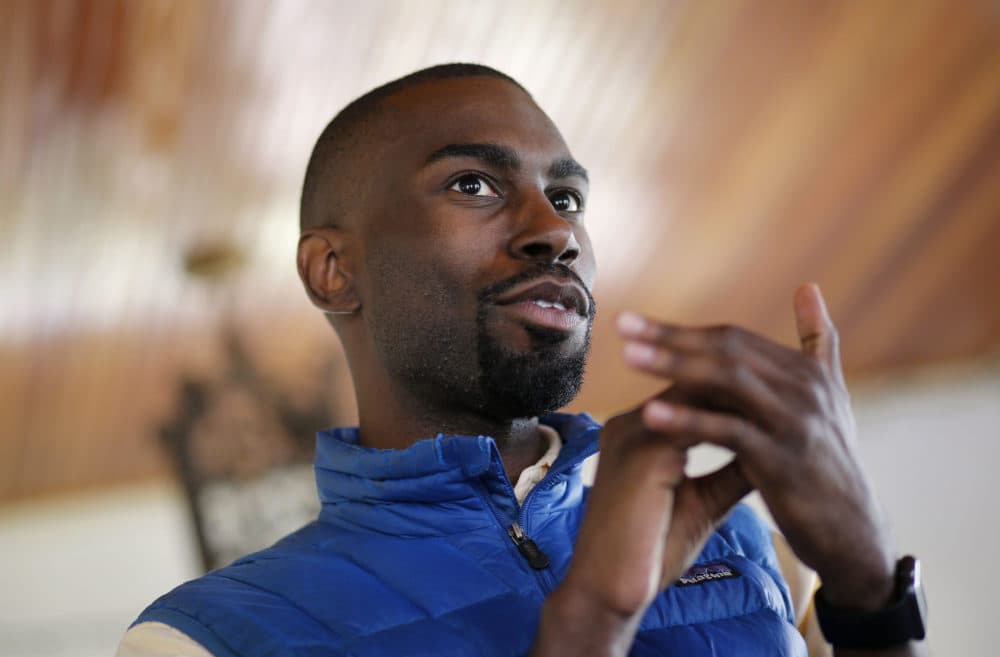Advertisement
Black Lives Matter Leader DeRay Mckesson Speaks Out On Disparities In The Right To Protest
Resume
In 2016, police arrested DeRay Mckesson at a demonstration in Baton Rouge, Louisiana, saying the Black Lives Matter activist ignored an officer’s request to get out of the road.
Five years later, he’s still dealing with the fallout from the arrest. Mckesson says his story is just another example of the differences in how people of color are treated by law enforcement.
The U.S. Capitol Police chose to utilize only 500 of its more than 2,000 officers for a planned event on Wednesday when pro-Trump rioters stormed the Capitol building, he says. Mckesson says he was surprised to see pro-Trump extremists take bold actions such as putting their feet on House Speaker Nancy Pelosi’s desk and then walk out of the building without handcuffs.
“I've seen the police be more aggressive for 40 people than they were for the thousands of white supremacists that were on the Capitol,” he says. “I thought I'd seen it all. And then there was that.”
Mckesson says he’s attended Black Lives Matter demonstrations where protesters didn’t bring weapons or damage property — but law enforcement tear-gassed, pepper-sprayed and shot at them. Friends of his have lost their vision and been hit with rubber bullets at protests, he says, all for advocating against police brutality.
In contrast, people were physically pushing the police on Wednesday. And one officer died from injuries sustained during the insurrection.
“Those things are just so much more intense than anything that ever happened at a protest that Black people led,” he says.
Following Mckesson’s 2016 arrests, one of the Baton Rouge police officers sued him. The officer was seriously injured by someone else during the demonstration but held Mckesson responsible for organizing the event. The case has made its way up to the Supreme Court, where Mckesson won. Now, he says he’s fighting another issue related to the case in Louisiana Supreme Court.
An allegation from a police officer wrapped Mckesson up in a 5-year legal battle for something he didn’t do, he says, and the facts of his case were never questioned.
“With white people, the living proof — watching them do it in real-time — still is not enough for there to be a consequence,” he says. “If I hadn't seen it happen like everybody else did, I probably would think people were exaggerating.”
As the co-founder of Campaign Zero, a nonprofit aimed at ending police violence, Mckesson and other organizers have been working on police reform for several years. He says organizing is the key to challenging the power of the police and changing the system for the better.
But he doesn’t let his hopes for change get too high: Police shoot and kill between 900 and 1,1000 people per year in the U.S., according to the NAACP, and the protests and advocacy performed in 2020 didn’t bring those numbers down.
“The good news is that the legislature just opened. There'll be a lot of legislation around the police being introduced,” he says. “And this is our moment.”
Alexander Tuerk produced and edited this interview for broadcast with Tinku Ray. Allison Hagan adapted it for the web.
This segment aired on January 8, 2021.

